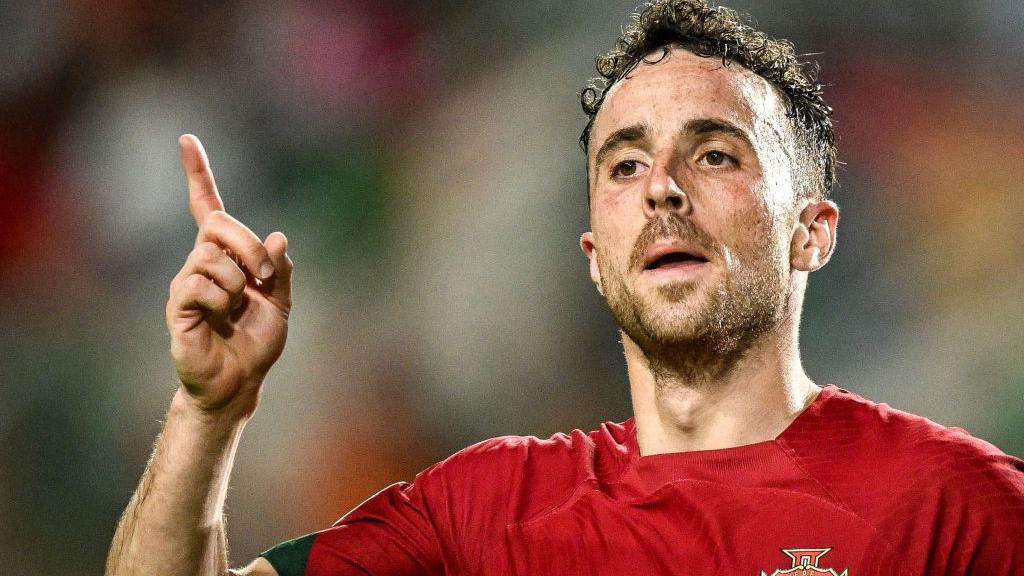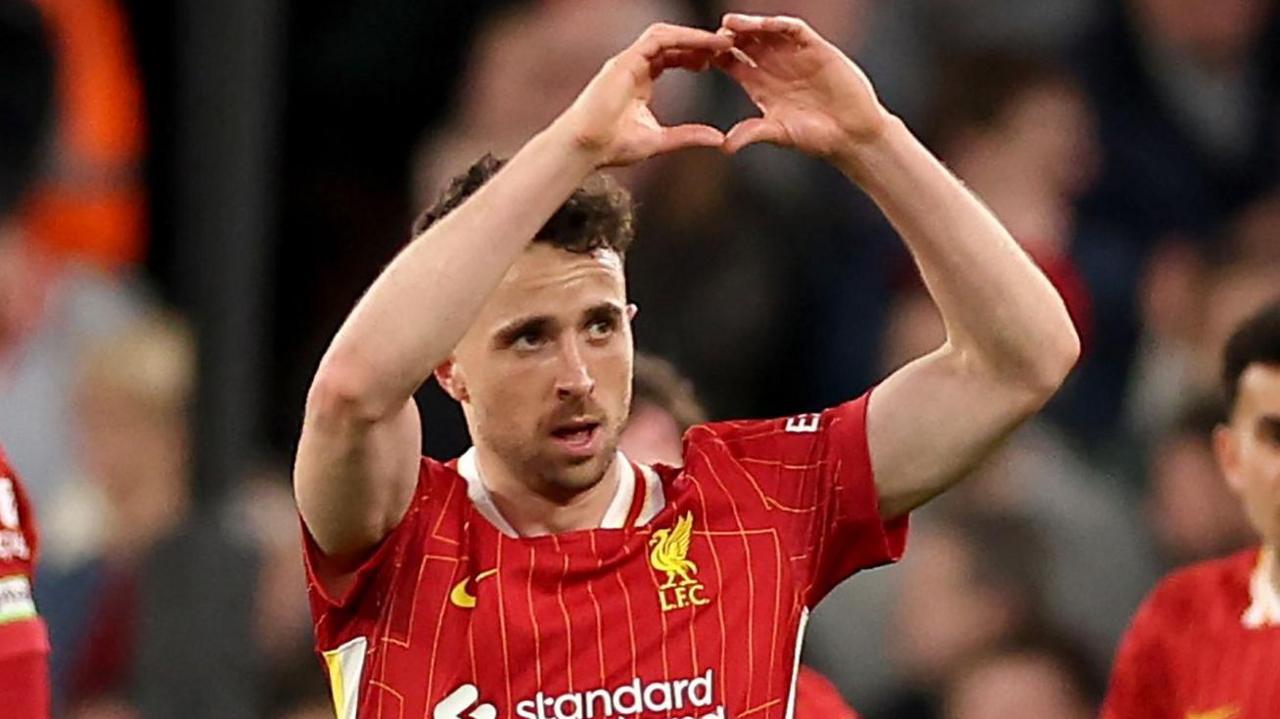
“It’s not about where we come from, but where we’re going to.”
The sentence can be found at the entrance of the Gondomar SC academy followed by a picture of its illustrious son Diogo Jota wearing the colours of the club he played for between the ages of nine and 17.
Right next to it, there’s another one of him with the Portugal national team shirt too.
That’s how far Jota went.
Since 2022, it has been renamed as the Diogo Jota academy.
Those words, said by the forward himself after scoring twice in a 3-0 win against Sweden in the Nations League in 2020, illustrate exactly who he was.
The 28-year-old, who died along with his brother Andre Silva on Thursday following a car accident in Spain, spent almost all his formative years in his hometown with a third-tier team, paying around 20 euros each month to play for them while being overlooked by the big sides because of his size.
Despite the odds, he never gave up.
-
-
16 hours ago
-
He kept believing and went from Gondomar to Pacos de Ferreira, then to Porto, Wolverhampton and finally Liverpool.
Jota became a symbol of hope and inspiration back home. He proved to an entire country that it’s possible to reach the top even if the path isn’t a straight line.
The talent had always been there.
So much so that in his early days, when he was starting to draw some attention with Pacos, one of his former coaches, Jorge Simao, made a big claim by saying Jota would be Cristiano Ronaldo’s successor.
The player was obviously surprised to hear that, but immediately thought to himself, ‘If he believes in that, why can’t I do that?’
Jota was a rare case of an elite Portuguese footballer who never spent time at any of the big three academies – Benfica, Sporting and Porto.
“What set him apart from everyone else was really the mental aspect, the way he overcame any situation – and he realised that very quickly,” former Pacos’ youth football coordinator Gilberto Andrade told BBC Sport.
“I think there are moments when, whether you’re a coach, a coordinator, or a director, there are words, things said, that have a great impact on players. At the time, perhaps they don’t fully understand it, but later it reflects in their behaviour, in how they train, in how they live day to day.
“And Jota, I think, to some extent with us, understood what it meant to be a professional player, what it meant to be a good athlete, a good person. He was an example in that regard. An example, because often success leads many players to have a somewhat winding path due to the money they make.
“But that wasn’t the case with him. He was always very disciplined, very intelligent, very humble. He invested wisely, knew what he was doing, helped those he could. So I think this is the image that must remain of him.”
To play this video you need to enable JavaScript in your browser.
This video can not be played
Jota took the long road, but always had it clear where he was going.
That became obvious to Andrade the day he came to him with an unusual request. “I want to learn a foreign language. Someday, I might play abroad and I’ve got to be ready,” said Jota.
The Gondomar boy was still young but had spent long enough outside the radar of the Portuguese powerhouses to realise his future could be far away from his home country.
“He knew very well where he was going,” recalled Andrade, who has also worked in Italy, Belgium and Saudi Arabia.
“Back then, I had those audio language courses, so I handed some of them to him. Soon, however, he realised they weren’t enough – he actually needed a teacher. For him, it was evident that he was going to need it later in his career. He was this different.”
For a brief moment, Jota feared his career would be at risk following a heart problem diagnosed during medical tests ahead of the 2014-15 season.
He was not allowed to train for almost a month.
“Do not put the cart before the horse,” he used to reply to anyone who came to him worried about the situation at the time.
That was how he lived his life – taking it day by day.
Jota quickly established himself as one of the rising talents of the Portuguese league after that, but didn’t change a bit.
The number of teams interested in his services kept rising and yet he chose to remain living in the club’s dormitory with other academy graduates and trialists that came and went until his very last day at Pacos. He was the only first-team player living there.
“He wouldn’t leave his room. He was solely focused on his work, there was no time for distractions when it came to him,” added Andrade.
Jota always knew where he was heading and, throughout his life, he proved time and again the journey mattered more than the starting point.
His voyage to becoming a Portuguese hero was a beautiful one.
To play this video you need to enable JavaScript in your browser.
This video can not be played
Related topics
-
-
13 hours ago
-




